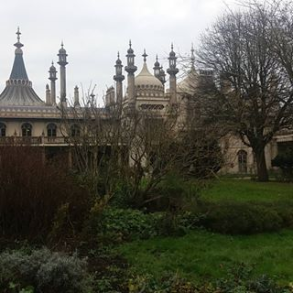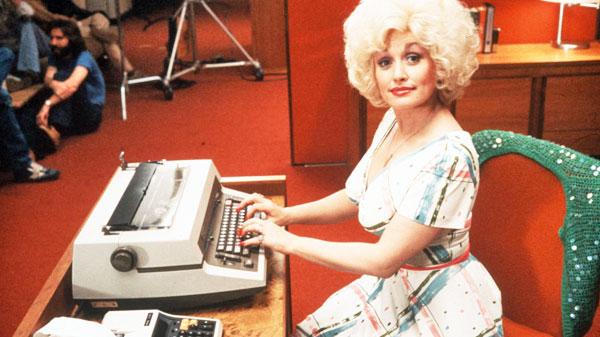We all know it’s been… a year. I don’t care who you are, unless you’re a multibillionaire, 2020 has not been kind to you.
It’s felt like it’s piled up here, in my house: I started the year ill (labyrinthitis), got ill again with probable COVID in March, balanced the longer effects of said illness (nine months and counting!) with homeschooling, working as a keyworker and generally trying to keep life going generally in a straight line. All was relatively fine- as fine as it can be during a global pandemic, anyway- until my husband had an accident in June that led to a period of testing and quarantining so he could have operations. Add a child who has an uncanny habit of catching cold and we’ve now done five bouts of isolation, which is about as fun as you imagine it to be.
Throughout all this, it has been very easy to give into the wave of despair. There’s nothing we can do, is there? We have no control over vaccines, or shutting airports, or Brexit, or whether people go on long drives to test their eyesight with their small child in the car. It has all felt so hopeless. And now we’re to be shut down again for how long, because the warning signs of the spring, of Italy, of a pandemic a hundred years before haven’t been heeded. Because, because, because.
I remember very clearly a sunny day in April, where I sat on the bottom step in my house and cried. Not just gentle, Hollywood-feminine crying of a single tear, but full-on ugly snotty crying, with proper sobbing that I suspect the neighbours might have heard had they had their backdoor open. I had had a bad day with homeschooling. I was tired. My sense of smell and taste hadn’t come back yet. I had had enough. I remember thinking I had no idea what to do or how I would change anything. I could feel the anxiety of years building up and threatening to wash over me in a huge, virus-based tsunami.
But then I thought: baby steps.
I couldn’t change the big things, but I could do something small. I could wash my face- that would be a small step towards something like normality. On the mornings I couldn’t rouse myself out of bed, the cat would demand I did so anyway because she needed to be fed and cats don’t care if you’re ill. Time became a soup, rather than a linear thing, so the baby steps became a routine of marking out hours, minutes, even seconds if I needed to get through them to the next thing. It became a game: if I got through this hour, I could do X. If I got through the whole day, I could do Y – which was normally to go to my allotment, which became a very good way to keep track of time because of seasons and squirrels stealing my vegetables requiring my attention.
Slowly, I found I was able to cope. Of course, I couldn’t change the big things but I could manage some kind of control. If I’m honest, all I wanted to do was whatever the human equivalent is of that thing cats do where they lie down with their paws tucked underneath them. I still haven’t managed that. But I managed to bring a sense of calm, most days, to a brain that seems sometimes utterly incapable of doing it by itself.
2020 has also taught me that I’m not quite the fatalist I thought I was. Instead, I was able to find small slices of optimism: sometimes, it was as simple as a nice day meant I could go on a long walk wherever my feet took me. Suburban Brighton isn’t quite Paris, but it’s good enough on a sunny day. Plus everyone planted tulips, so of course I have planted lots for next year. There’s also comfort in the fact that these days will pass, although we don’t know when. I suspect they will be fascinating for future historians and that many books will be written about this period. Politics and history exist in cycles, because humans are driven by them. One day, these politicians, this prime minister, will be a memory and a lesson in how not to do things. Hopefully a change will come soon.
People give me optimism. As a whole, I believe we’re more good than we sometimes think. Yes, there are unpleasant people, but you can’t focus on them. As Mr Rogers said: we should always look for the helpers.
Baby steps.
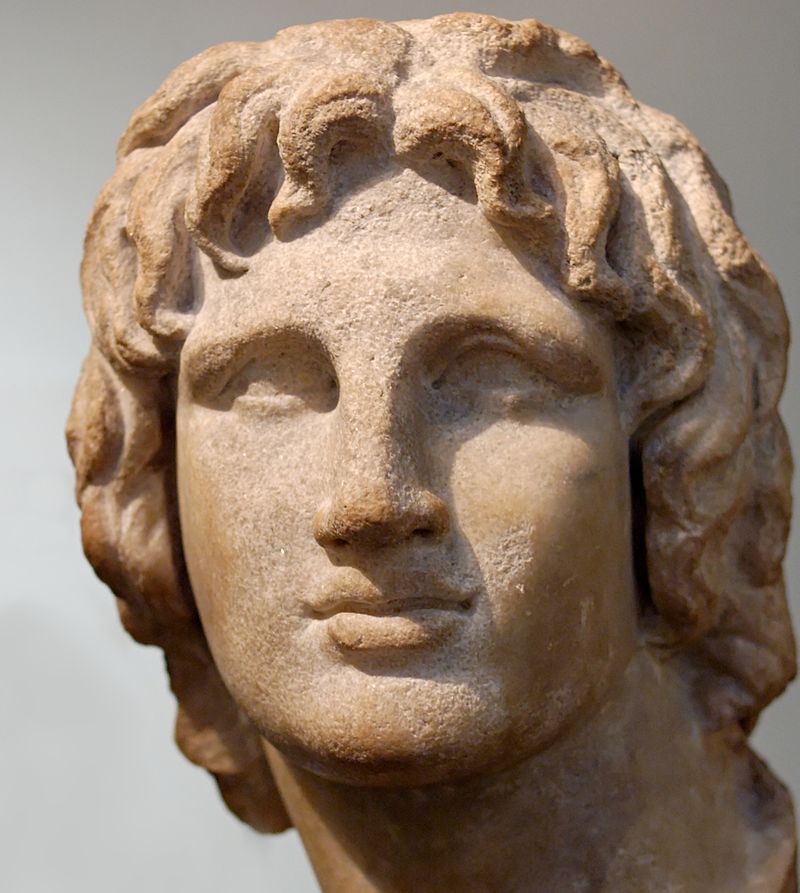
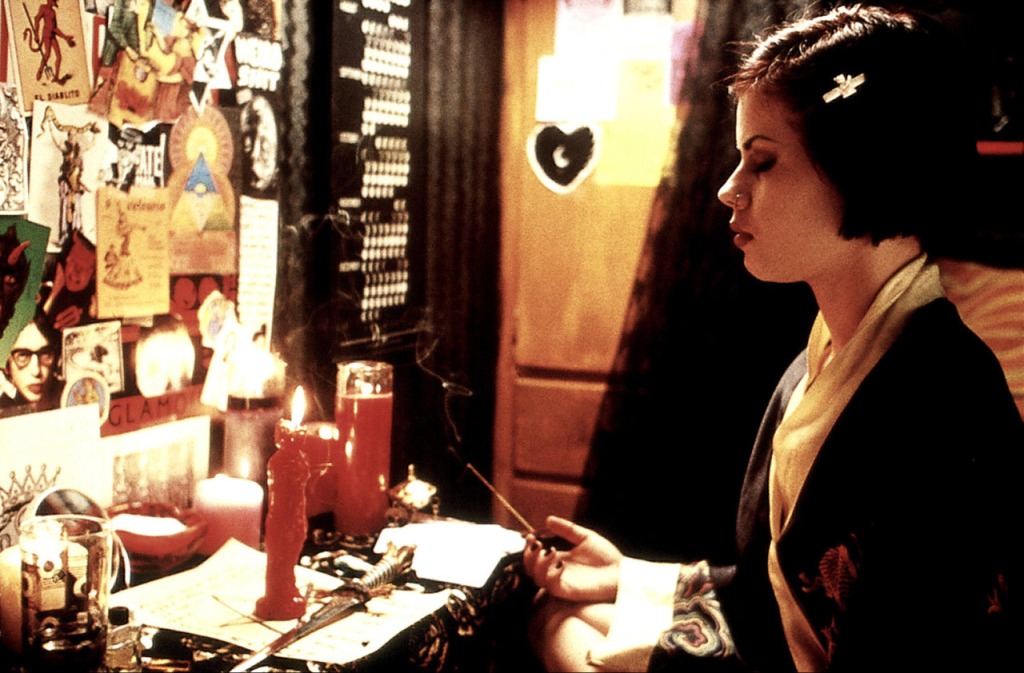



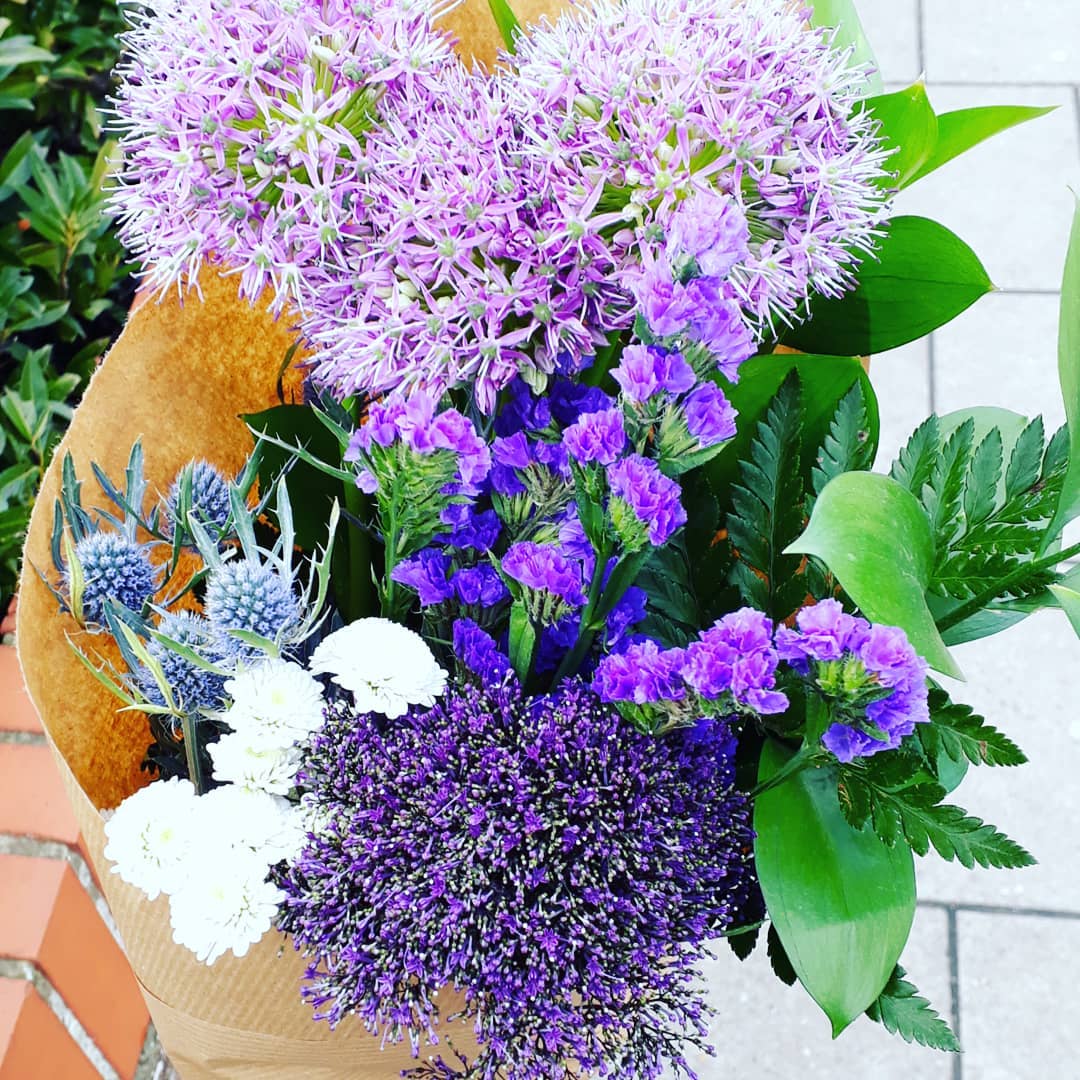
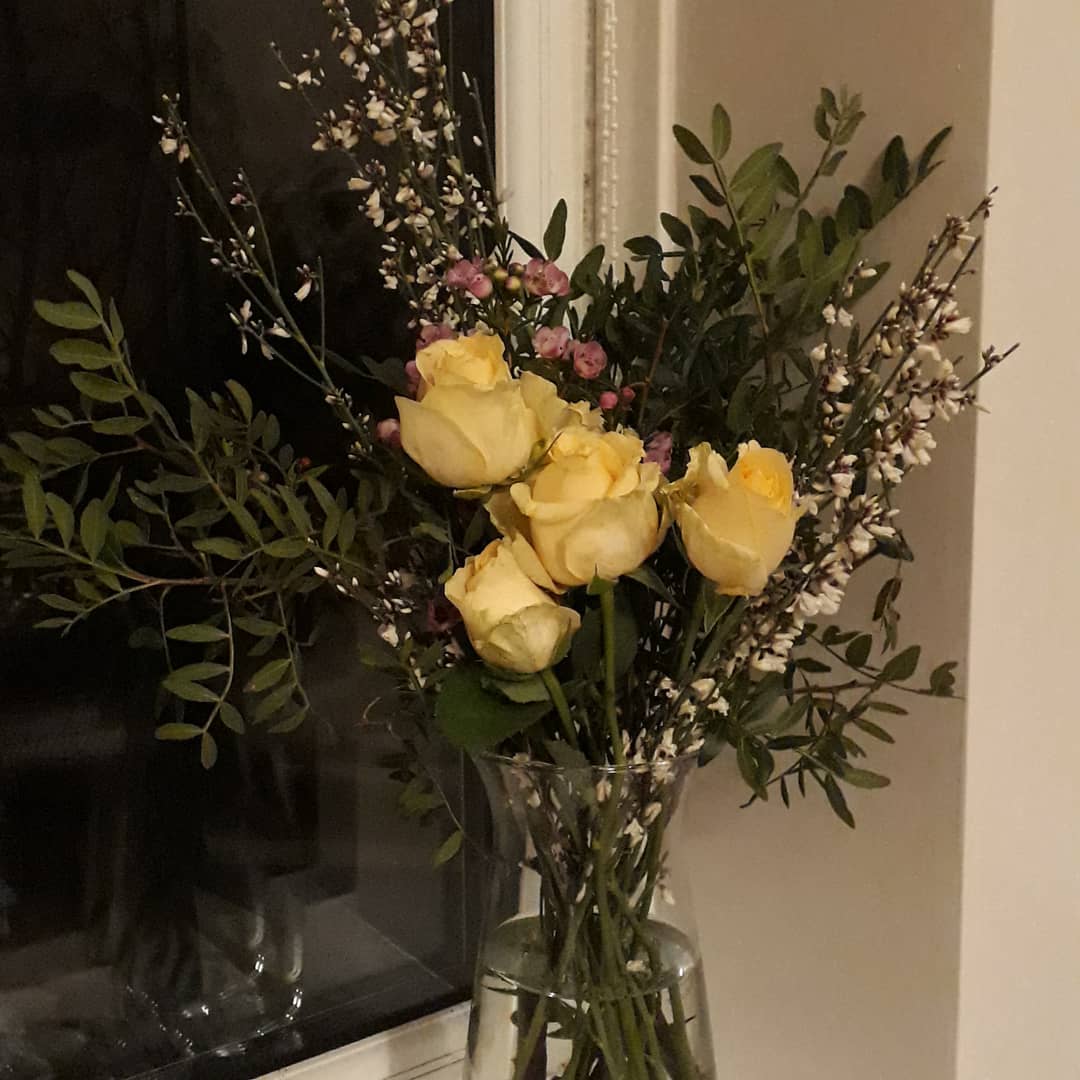 Every time you have an empty vase, fill it with water and put a few drops of bleach in it and leave it overnight (although I forget and sometimes leave it a few days…) Empty it and rinse it out. This will kill any bacteria and means that you’re starting with a clean, germ-free vase. It’ll mean that your flowers last longer from the get-go. In a similar vein, make sure you change your water every couple of days.
Every time you have an empty vase, fill it with water and put a few drops of bleach in it and leave it overnight (although I forget and sometimes leave it a few days…) Empty it and rinse it out. This will kill any bacteria and means that you’re starting with a clean, germ-free vase. It’ll mean that your flowers last longer from the get-go. In a similar vein, make sure you change your water every couple of days.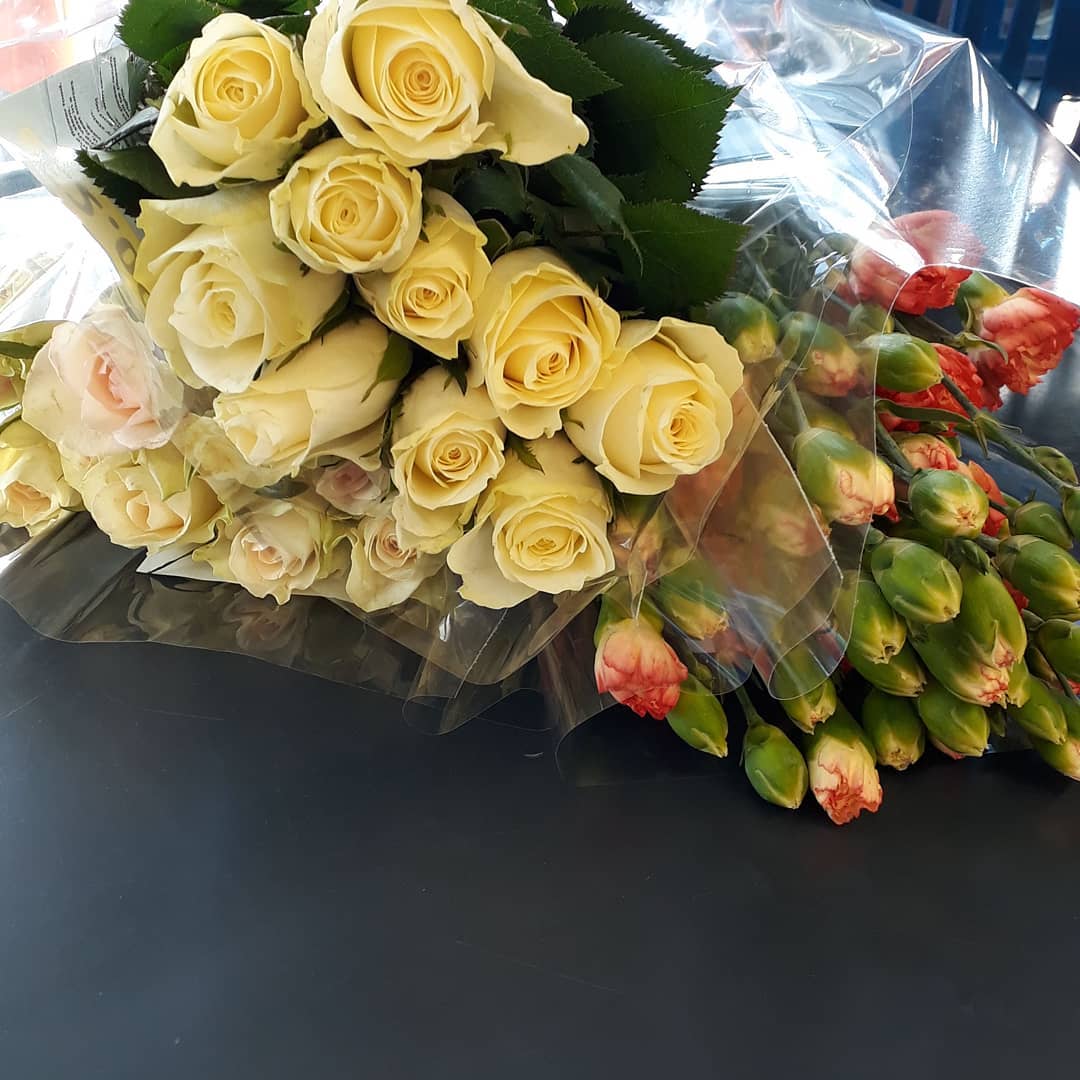 I do love going to the florist, but it is expensive. There’s nowt wrong with supermarket flowers- I use them quite a bit for class, and a florist recently recommended I buy focal flowers (i.e. the main flowers in an arrangement) from a florist, the secondary flowers from a supermarket and the greenery from a garden. To be honest, it depends on time/money as to whether I have time to do all of that. But you can definitely gussy up a couple of bunches of Aldi’s finest- arrange them in a symmetrical pattern, twisting the stalks if you can, any foliage on the outside, and tying off with string. Chop the bottoms of the stalks off evenly- et voila! A tied bouquet! The only thing I would say is that supermarket flowers do not tend to last as long as florist bought flowers, but when they’re cheap as chips, who cares?
I do love going to the florist, but it is expensive. There’s nowt wrong with supermarket flowers- I use them quite a bit for class, and a florist recently recommended I buy focal flowers (i.e. the main flowers in an arrangement) from a florist, the secondary flowers from a supermarket and the greenery from a garden. To be honest, it depends on time/money as to whether I have time to do all of that. But you can definitely gussy up a couple of bunches of Aldi’s finest- arrange them in a symmetrical pattern, twisting the stalks if you can, any foliage on the outside, and tying off with string. Chop the bottoms of the stalks off evenly- et voila! A tied bouquet! The only thing I would say is that supermarket flowers do not tend to last as long as florist bought flowers, but when they’re cheap as chips, who cares?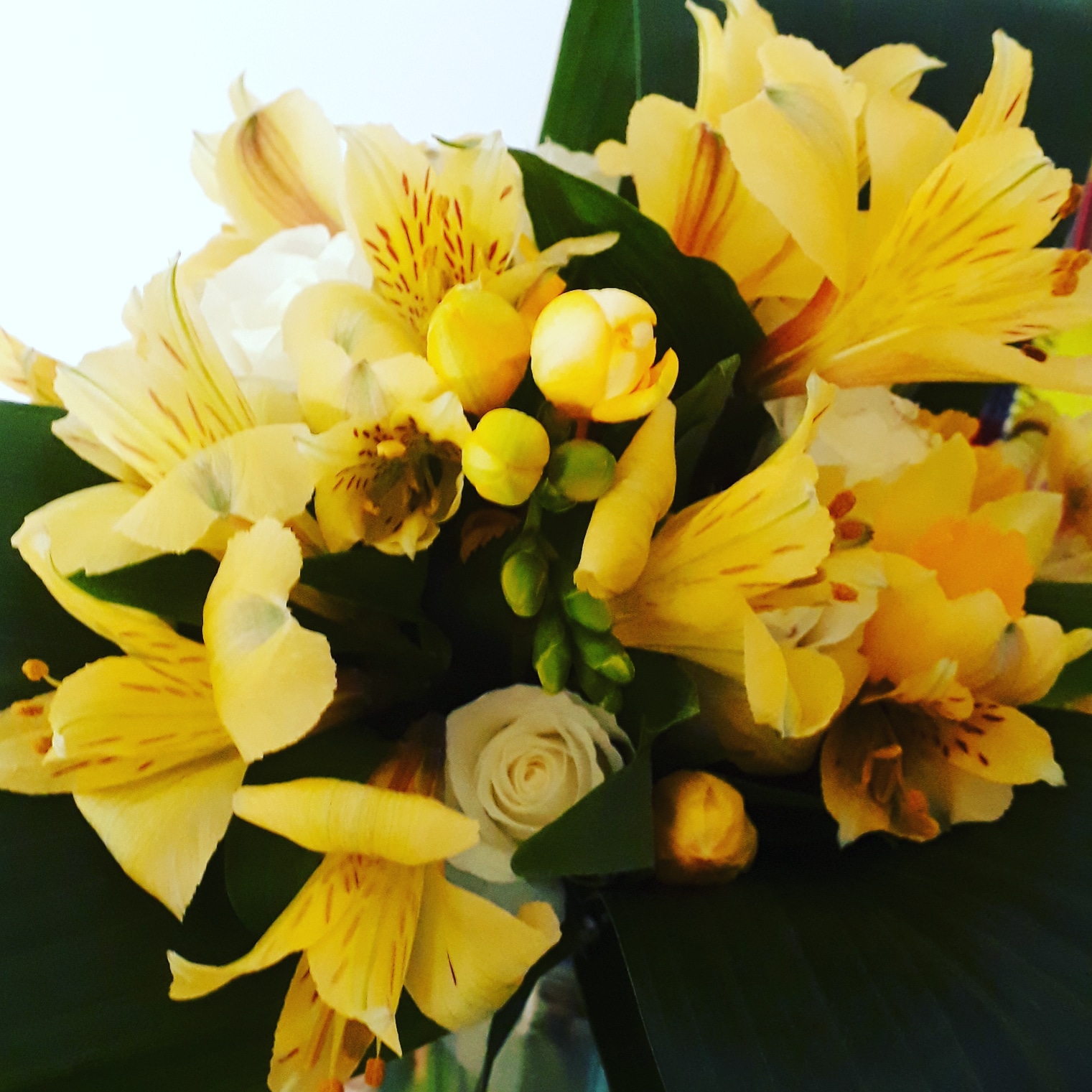 I think one of the reasons I’m not terribly good at the lessons is that I’m not very keen on the formality of what we’re being shown. This is just my thing and no judgement on the teacher (who I love) or the whole world of floristry. It’s just me being an awkward sod. I tend to prefer smaller arrangements that suit a more vintage taste, which have a country garden look to them. This is what I will continue to make once I finish my course, and what I enjoy making. As one of Brighton’s top florists told me, ‘It’s not rocket science and there are no hard and fast rules.’ (He was quite dismissive of a lot of the formal structure of floristry- and seeing as he did my wedding bouquet, I tend to trust him!) One thing I would say: supermarket flowers tend not to smell much. If you want that, consider buying some broom or something like stocks from a florist- even one stem of these will lift your bunch of flowers into something a bit more special.
I think one of the reasons I’m not terribly good at the lessons is that I’m not very keen on the formality of what we’re being shown. This is just my thing and no judgement on the teacher (who I love) or the whole world of floristry. It’s just me being an awkward sod. I tend to prefer smaller arrangements that suit a more vintage taste, which have a country garden look to them. This is what I will continue to make once I finish my course, and what I enjoy making. As one of Brighton’s top florists told me, ‘It’s not rocket science and there are no hard and fast rules.’ (He was quite dismissive of a lot of the formal structure of floristry- and seeing as he did my wedding bouquet, I tend to trust him!) One thing I would say: supermarket flowers tend not to smell much. If you want that, consider buying some broom or something like stocks from a florist- even one stem of these will lift your bunch of flowers into something a bit more special. Around Valentines and Mother’s Day, flowers will be at their most expensive. If you wanted to make something flowery in the run up to those, I would heartily recommend you buy supermarket flowers for the bulk of it (especially if you want roses or tulips) and then go to a florist for a few finishing touches. The bouquet about was commissioned by Benn for his mum and I did go to a florist where I know I will get a good deal (and a discount for being a student, hurrah!) This is more my style- I love stuff that looks like I could just pluck it from my garden on a sunny June day and it’s nicely balanced, I think. Anyway, there are a few things I’ve noticed when you put together a bouquet:
Around Valentines and Mother’s Day, flowers will be at their most expensive. If you wanted to make something flowery in the run up to those, I would heartily recommend you buy supermarket flowers for the bulk of it (especially if you want roses or tulips) and then go to a florist for a few finishing touches. The bouquet about was commissioned by Benn for his mum and I did go to a florist where I know I will get a good deal (and a discount for being a student, hurrah!) This is more my style- I love stuff that looks like I could just pluck it from my garden on a sunny June day and it’s nicely balanced, I think. Anyway, there are a few things I’ve noticed when you put together a bouquet: I have a
I have a 


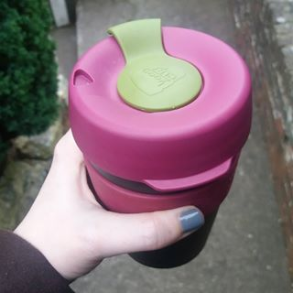 The biggest things that have made the most difference to my walking commute though, are the following:
The biggest things that have made the most difference to my walking commute though, are the following: